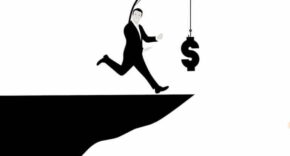Americans’ debt levels continue to climb to new heights at a time when economic conditions are becoming increasingly less stable.
Household debt balances set a fresh record high of $17.05 trillion during the first quarter, growing $148 billion or 0.9% from the fourth quarter of last year, the Federal Reserve Bank of New York reported Monday.
That debt load has spiked by $2.9 trillion since the end of 2019.
During the first quarter, the increases in debt were seen across practically all categories, with larger (and new record) balances for mortgages, home equity lines of credit, auto loans, student loans, retail cards and other consumer loans.
Notably, credit card balances were flat — holding at $986 million — during the first quarter, seemingly serving as an outlier; however, this is the first time in more than 20 years that there hasn’t been an outright decline in that category, NY Fed researchers said.
Typically, the first three months of the year bring a bit of a breather for credit cards after their heavy holiday workout as consumers pull back on spending and pay down some debt with the help of New Year’s Resolutions or tax refunds.
That didn’t happen this time around.
“The fact that they didn’t fall in Q1 this year doesn’t bode well for the rest of the year,” said Matt Schulz, chief credit analyst at LendingTree.
Effects of robust spending
To this point, credit card debt has been rising at the sharpest pace of any debt covered in the report, said Ted Rossman, senior industry analyst for Bankrate.
“I think that reflects more people using credit cards to finance day-to-day necessities (although there’s also an element of people using less cash and more people using cards for convenience and rewards and paying them off right away),” he said, noting that Bankrate research shows that 46% of cardholders carry debt month to month, with 54% paying in full, Rossman said. Last year, 39% carried debt month to month.
The primary culprits are inflation, spending increases since the pandemic and typical consumer behavior, Schulz said. Increases in credit card debt can be a either sign of confidence or struggle, he added.
“Except in times of economic catastrophe, like the onset of the pandemic or the Great Recession, credit card debt just continues to grow,” Schulz said. “Those two events are the only times in decades in which we have seen a meaningful decrease in credit card debt.”
Despite debt climbing to new records, households on average are effectively managing their obligations: The share of current debt becoming delinquent increased across most debt types; however, for the most part, they remain below pre-pandemic levels, according to the New York Fed report. Delinquency rates fell sharply at the outset of the pandemic.
The “refinancing boom” helped households’ financial positions, New York Fed researchers noted. During the pandemic, 14 million mortgages were refinanced, allowing for $430 billion of home equity to be extracted through cash-out refinances. About 64% of those actions were homeowners refinancing to a lower rate, which allowed for an average payment reduction of $220 per month, according to the researchers.
“The mortgage refinancing boom is over, but its impact will be seen for decades to come,” said Andrew Haughwout, director of household and public policy research at the New York Fed, in a statement. “As a result of significant equity drawdowns, mortgage borrowers reduced their annual payments by tens of billions of dollars, providing additional funding for spending or paydowns in other debt categories.”
Warning signs
Still, this latest batch of household data carries some concerning signals, New York Fed researchers and analysts note.
Auto loan delinquencies for younger borrowers, those under the age of 40, surpassed pre-pandemic levels. With inflation driving up car prices, the average payment is hovering around $700 a month, Rossman said.
“For some people, a car payment might be rivaling a rent payment; but then again, [rent] has gone up so much that I think it’s that cumulative effect,” Rossman said. “Higher prices on a lot of things, higher interest rates: I feel those trends are colliding in a negative way, unfortunately, for a lot of households.”
Additionally, this report does not fully reflect the effect and debt loads of Buy Now, Pay Later installment loans, New York Fed researchers noted.
And student loans — one area where some Americans have been getting some breathing room in part because of pandemic-era forbearance programs — could be another shoe to fall at a time when recession fears are growing and other macroeconomic concerns (like the banking turmoil or the current debt ceiling crisis) are looming, Schulz said.
“There’s never a great time to carry debt, but it’s even worse when there’s a lot of uncertainty,” he said.
For consumers who have loaded up on debt, there is a silver lining of higher savings rates, Schulz said.
And Rossman noted there are other avenues as well.
“For the foreseeable future, we’re stuck with high credit card rates, high balances, and more people carrying debt,” he said. “My advice would be to pay down credit card debt, as quickly and cost effectively as possible. I know it may be easier said than done, but 0% balance transfer cards are still abundant to pause that interest clock for up to 21 months.”
He added: “Chances are, if you have credit card debt, this is your highest interest rate by a wide margin, so I really think that needs to be a priority.”










